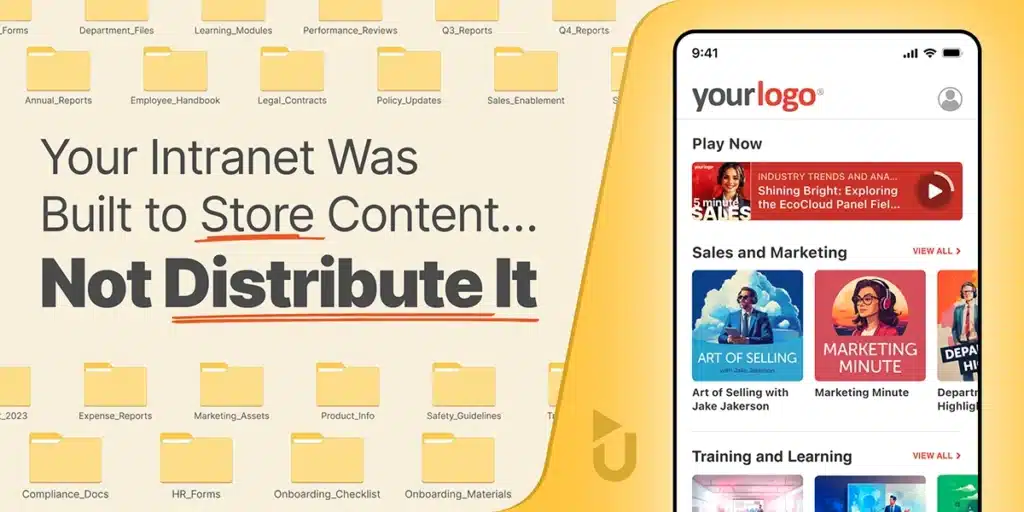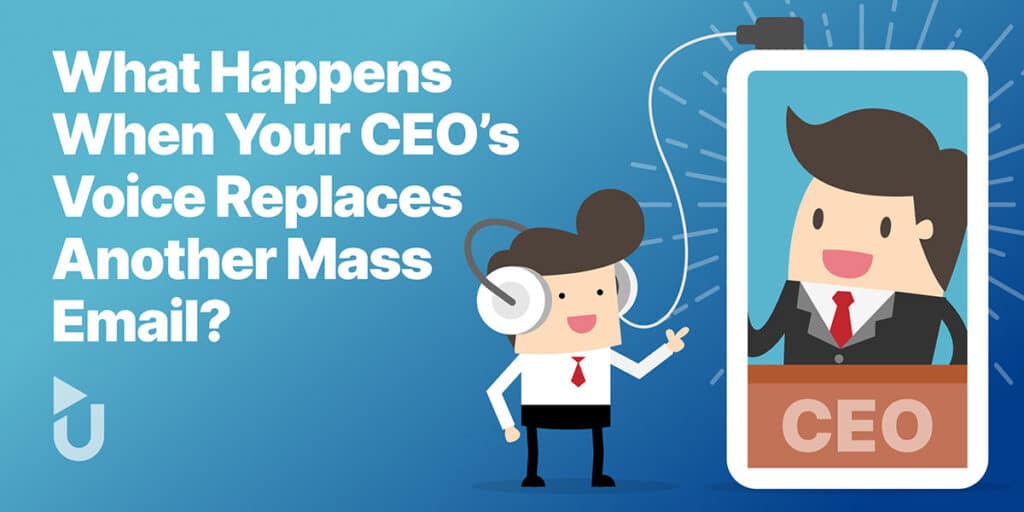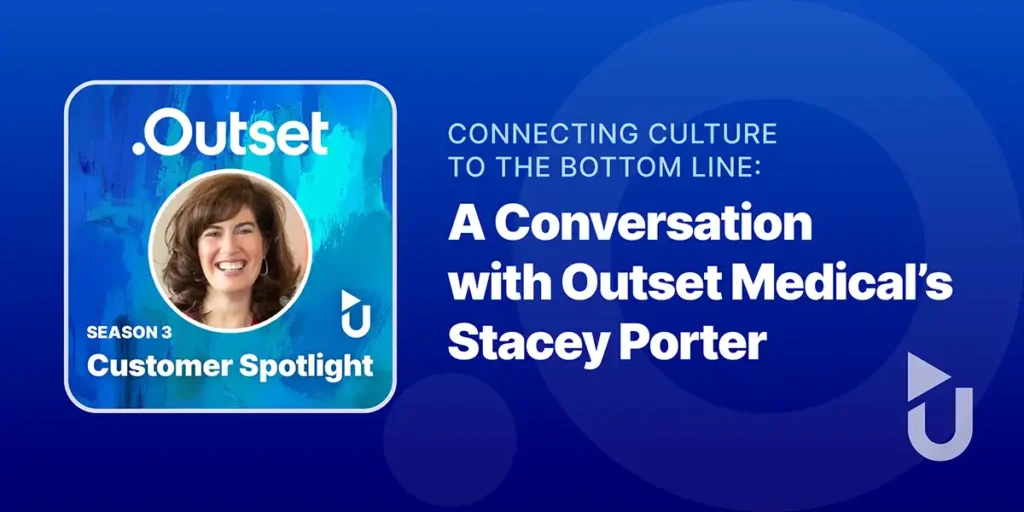Your LMS Was Built for Compliance, Not Engagement
Michael Wright - VP of Sales at uStudio | Blog, Podcasting, Training & Learning

The TLDR;
- LMS platforms were designed to track training completion, not to ensure anyone remembers what they learned
- Employees are overwhelmed, mobile, and multitasking. Static training doesn’t stick
- Modern teams are using podcasting to reinforce messages in the flow of work
- It’s not about replacing the LMS. It’s about adding a low-friction layer that improves outcomes
Your LMS Was Built to Check Boxes, Not Change Behavior
Most LMS platforms were designed to solve one core problem: compliance. Certify that someone watched the training. Confirm they passed a quiz. Log the activity in case HR or Legal ever needs proof.
And to be fair, they do that well.
But as work has changed, the limitations of LMS have become painfully clear.
The LMS assumes that learning is a one-time event. That watching equals understanding. That completing a module means you’re ready to apply what you learned.
None of that matches how people actually absorb and retain information today.
So if your company is still relying on LMS to align your teams, shift mindsets, or deliver strategic messaging, you’re solving the wrong problem with the wrong tool.
Why LMS Struggles in the Flow of Work
Let’s say you roll out a new positioning message across your go-to-market team. It’s nuanced. It’s high stakes. You create a slide deck, record a video, and upload it to the LMS.
And then…
Nobody watches it.
Or they watch it once, check the box, and forget it two days later.
Because today’s employees are not sitting down for dedicated learning blocks. They are multitasking. They are context switching. They are absorbing information in micro-moments throughout their day.
The LMS workflow is at odds with how modern teams operate. Reps are in the car. Field technicians are on site. Managers are bouncing between back-to-back meetings.
They need access to the message in formats that don’t require stopping everything else.
And that is exactly where most LMS platforms fall short.
What Actually Drives Retention
Retention is not about how good the training material is. It is about how often people encounter it, how well it fits into their routine, and how easily they can revisit it when needed.
Learning is not a one-and-done event. It is a habit.
That’s why repetition matters. It is why format matters. And it is why short-form audio content is exploding inside forward-thinking enterprises.
Podcasting supports spaced repetition. It lowers the barrier to consumption. It keeps the signal alive long after the kickoff call.
More importantly, it builds trust. Because the best training is not just informational. It is human.
And human connection does not come from clicking through a course.
A Real-World Pattern: What We Commonly See Across Enterprises
Across the enterprise landscape, a consistent pattern has emerged. LMS completion rates might look strong on paper, but message retention and behavioral follow-through often fall short.
We’ve seen enablement teams roll out beautifully structured modules, only to find that reps cannot recall key points days later. Managers report having to repeat guidance in one-on-ones. Compliance boxes get checked, but the real operational goals—confidence in product messaging, fluency in objection handling, internalization of new positioning—remain elusive.
The most forward-thinking teams are starting to rebalance. They are still using the LMS for what it does best: certification, documentation, accountability. But they are layering on lightweight, passive formats to reinforce the most important takeaways. A three-minute audio recap before a big product push. A mobile-first refresh on competitive talking points. A manager-narrated win story that actually sticks.
It is not about replacing the LMS. It is about recognizing its limits and expanding the toolkit.
The Role of the LMS in a Modern Learning Stack
Let’s be clear. The LMS still matters.
You need it for compliance. For certifying skills. For delivering in-depth product training.
But it is not enough.
Modern enablement is not just about checking boxes. It is about reinforcing messages in context. It is about supporting behavior change at scale.
Podcasting does not replace your LMS. It complements it.
It gives you a lightweight way to reinforce the right messages, in the right moment, without forcing learners into rigid experiences.
It meets people where they are. It gives leadership a voice. It creates space for nuance.
And it builds connection without the overhead.
Add, Don’t Replace: Where Podcasting Fits
When you introduce private podcasting into your enablement stack, something interesting happens.
You stop chasing engagement.
The content becomes habit-forming. Not because it is slicker or shorter. But because it fits the day.
It works offline. It plays in motion. It pushes instead of waiting to be pulled.
It becomes the connective tissue between formal training and daily behavior.
And that is exactly where most companies struggle.
They do not need more content. They need their content to actually stick.
Podcasting helps it stick.
FAQs:
Is podcasting a replacement for LMS platforms?
No. LMS platforms are critical for compliance and certifications. Podcasting adds a complementary layer focused on engagement and retention.
What types of content work best for podcasting?
Short-form updates, leadership messages, product positioning, FAQs, win stories. Anything where tone, timing, and recall matter.
How do we know employees are listening?
With uStudio, you get full analytics on engagement. Track who listened, when, and where drop-off happens.
Is private podcasting secure enough for internal use?
Yes. Our enterprise-grade platform gives you role-based access controls, secure delivery, and audit-ready reporting.

Michael Wright is a seasoned sales and customer success leader with over 15 years of experience in sales, account management, and client success. He has held progressive leadership roles at companies such as SpareFoot (2011–2017) and Rollick (2017–2022), where he served as VP and Director of Sales and Account Management. Currently, he is the VP of Sales and Customer Success at uStudio and an Executive Member at Pavilion.
Michael began his career as a Surgical Attendant at St. Mary’s Hospital and later transitioned into sales and account management roles at IT Convergence, Precision Tune Auto Care, and others. He holds a B.A. from the University of Virginia and completed a Post Baccalaureate Pre-Medical Program at UC Berkeley Extension.



